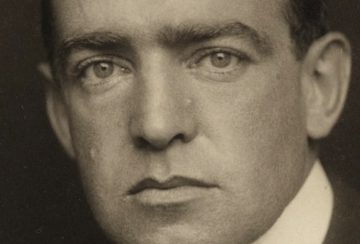Ranulph Fiennes in Literary Hub:
 The Royal Geographical Society encouraged the Royal Navy to support British expeditions of Antarctica in the early 1900s. Heading from New Zealand, the expedition ship Discovery anchored off the coastline of the unknown land under the leadership of Captain Robert Falcon Scott. He chose the Anglo-Irish ex-Merchant Navy Third Officer, Ernest Shackleton, to lead the first hazardous sledge journey inland over slippery surfaces at temperatures as low as minus 62 degrees Fahrenheit. They aimed to make history by breaking the furthest South record towards the bottom of planet Earth.
The Royal Geographical Society encouraged the Royal Navy to support British expeditions of Antarctica in the early 1900s. Heading from New Zealand, the expedition ship Discovery anchored off the coastline of the unknown land under the leadership of Captain Robert Falcon Scott. He chose the Anglo-Irish ex-Merchant Navy Third Officer, Ernest Shackleton, to lead the first hazardous sledge journey inland over slippery surfaces at temperatures as low as minus 62 degrees Fahrenheit. They aimed to make history by breaking the furthest South record towards the bottom of planet Earth.
Both men succeeded separately, over the next ten years in hellish conditions, to open the way to the South Pole. Scott became famous through the courageous manner of his death and Shackleton through his remarkable 18-month survival story, which ended when his ship, the Endurance, sank. He died in January 1922, 100 years ago, on another Antarctic voyage.
When cocooned in the darkness for months on end, many on Antarctic expeditions have lost their minds.
More here.
